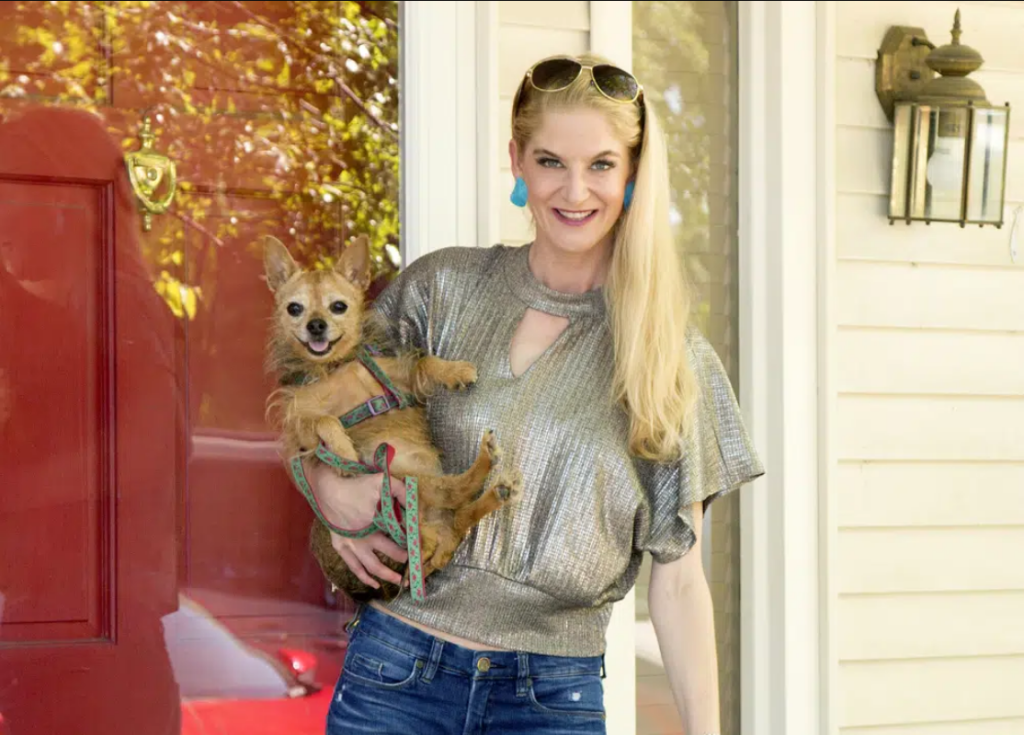Nick Farrow’s Journey: Embracing Platonic Co-Parenting for Family Building
Nick Farrow, a 45-year-old man, desired what many others do: to have a child and a parenting partner. After a long-term romance didn’t work out, he took matters into his own hands and embarked on a unique path. Nine years ago, Farrow entered into a platonic open arrangement that has thrived ever since his daughter Milly was born.
In recent years, more and more families are coming together platonically, choosing to build their families without the complications of divorce or the added stress and expense of going it alone. Platonic co-parenting, where individuals decide to parent together while living separately or under the same roof, has long been embraced by the LGBTQ+ community and is now gaining ground among heterosexual individuals, with interest surging during the pandemic.
Farrow and his parenting partner reside about 15 miles apart, with Farrow in the picturesque English seaside town of Brighton. Their daughter, conceived through insemination, shuttles between them. Similar to divorced couples with children, they come together to celebrate Milly’s birthdays and sometimes alternate Christmases and other special occasions.

Explaining their unique arrangement to family and friends was a process that involved allowing everyone to meet and ask challenging and uncomfortable questions. Initially, there was a sense that what they were doing was unconventional, risky, and potentially dangerous. However, by addressing concerns and getting everyone on board, they were able to create a supportive network.
Farrow met his parenting partner on Modamily, one of the few sites and apps dedicated to family building rather than the typical hookup culture and endless swiping found on dating platforms. Since its establishment in 2011, Modamily has seen approximately 100,000 registrations from individuals worldwide. The site has facilitated the birth of at least 1,000 babies through partnerships it has fostered, with nearly 10,000 known sperm donors available in their database.
The decision to engage in elective co-parenting takes various forms. While many platonic co-parents choose to live separately, some individuals seek out Modamily or similar services in search of sperm donors they can meet personally, with or without the intention of sharing their lives once the child is born. Other parenting partnerships form out of the need for financial and caregiving support in raising children. Additionally, some individuals are friends who desire to have children without a romantic relationship. Nick Farrow represents those who, despite their burning desire to be parents, have been unlucky in finding romantic love.

Public figures have also embraced the concept of co-parenting. TV commentator Van Jones recently welcomed a baby girl with a longtime female friend, adding to his existing family of two boys with his ex-wife. Similarly, Anderson Cooper, a CNN colleague of Jones, is now parenting two boys born via surrogacy after transitioning his relationship with boyfriend Benjamin Maisani into a close friendship.
While co-parenting is not new among divorced couples, divorced women are increasingly relying on each other for support in navigating parenting responsibilities. For example, Ashley Simpo, a 39-year-old mother, moved in with a friend and her two kids in Brooklyn, New York, to share expenses and parenting duties due to the high cost of living and low salaries. Their arrangement, referred to as a “mommune,” lasted about six months, providing both financial stability and a supportive community.
Platonic co-parenting arrangements require careful consideration and structure, especially when multiple parents are involved, such as after a divorce or when friendships evolve. Many individuals sign parenting agreements with the guidance of lawyers or family coaches to establish clear rules and non-negotiables. Topics covered in these agreements include religion, navigating new relationships, financial responsibilities, and disciplinary approaches.
In 2017, London-based entrepreneur Patrick Harrison co-founded PollenTree.com in 2012, creating a valuable resource for those interested in platonic co-parenting. Initially serving the UK, the platform expanded its reach to the United States as well. Users on Pollen Tree are divided between those seeking to meet and choose sperm donors without the option of co-parenting and those who are focused on creating their own alternative family structures.

Contrary to misconceptions, Harrison emphasizes that people looking to embrace platonic co-parenting are often quite conventional in their desires. They simply want to experience the joys of raising children. This sentiment has only grown stronger during the pandemic, with Pollen Tree experiencing a significant surge in registrations. Prior to lockdowns, the site averaged about 40 signups per day, but that number soared to 100 on some days in 2020 and 2021. Currently, among its 100,000 members, the platform maintains stable operations with monthly costs in the range of $30.
Tracy Smith, a 43-year-old immigration attorney from Tulsa, Oklahoma, discovered Modamily in 2020 and has been actively searching for a platonic arrangement with a stranger. Despite always wanting to become a mother and desiring a biological child of her own, Smith has faced challenges in finding a suitable romantic relationship. After 13 years of exhausting experiences with dating apps, she has engaged in conversations with male friends about the possibility of co-parenting platonically. However, finding someone willing to make that significant commitment has proven difficult.
Platonic co-parenting arrangements offer individuals like Nick Farrow and Tracy Smith an alternative path to parenthood, free from the constraints of traditional family structures. Whether it be through platforms like Modamily or Pollen Tree, or through personal connections and networks, people are increasingly exploring diverse ways to create their own families. With thoughtful planning, open communication, and legal agreements, individuals can navigate the complexities and challenges that arise, forging fulfilling co-parenting relationships while raising children in a loving and supportive environment.
